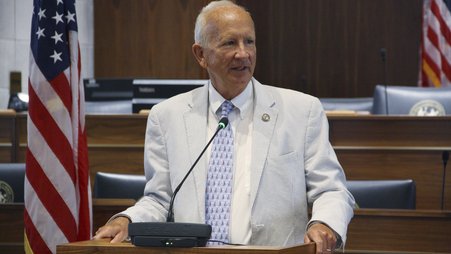
A Texas law that would force social media companies to host objectionable content is once again suspended while litigants request the Supreme Court weigh in on the issue. Last week the Fifth Circuit blocked the notorious legislation, known as H.B. 20, from taking effect until at least December, putting on hold its own controversial September ruling that seemingly disregards a century of First Amendment law. The statute had previously made a trip to the Supreme Court, where an unusual 5-4 majority granted a request for an emergency stay through its opaque “shadow docket” process.
The Texas law is one of a handful passed in Republican-led state legislatures aimed at making social media platforms carry a variety of users’ opinions — whether those websites want to or not. In Florida, Gov. Ron DeSantis waded into the fray last May with a similar law that has now been temporarily blocked by both a federal district court and the Eleventh Circuit. Earlier this month, Florida petitioned the Supreme Court to overturn that order. Between these two petitions and the recently granted challenges to CDA Section 230 (a key protection for online speech), this Supreme Court term could have major First Amendment implications.
The earlier Texas decision upholding H.B. 20 attempts to draw a legal distinction between the judgment exercised in social media moderation and that used by newspaper editors. But if legislators and courts can use this sort of blatantly unconstitutional law to dictate what social media companies must host, it’s not hard to imagine they’d try the same with news outlets next.
In fact, we’ve already seen the outlines of that effort, through campaigns to erode the First Amendment rights enshrined by cases like New York Times v. Sullivan. Those rights were hard-fought, and far from inevitable. Although the Texas and Florida laws may have only an indirect impact on newsrooms for now, they represent an open front in an ongoing press freedom battle.
—
What we’re reading:
- David Kaye: Here’s what world leaders must do about spyware: The former U.N. Special Rapporteur describes the problem with commercial spyware, which has been used to target journalists across the globe, and lays out a plan to curb its abuse.
- Gannett announces new cuts including mandatory unpaid leave and buyouts: The largest newspaper chain in the United States continues to struggle financially, especially since a 2019 merger with GateHouse left the combined company saddled with $1 billion in debt. Yet they have no problem doing massive stock buybacks!
- Newspapers with a partisan aim filling the void of traditional media: As local newspapers have reduced their coverage or disappeared altogether, outlets with a new model have stepped into the void in some political battleground states. Partisan publications with the trappings of traditional papers have resources and reach — and journalism educators are alarmed.
- KC photographer shoved to ground by NFL player after game: Photographer Park Zebley was shoved to the ground by a Raiders wide receiver. Our U.S. Press Freedom Tracker confirmed with Zebley’s attorney that he suffered a headache, whiplash and a concussion from the incident. The player, Davante Adams, has been charged with misdemeanor assault. Follow our U.S. Press Freedom Tracker for more.
- Journalists in US Moving Closer to Improved Legal Protections: Two separate bills are making their way through Congress that would block federal law enforcement from subpoenaing media workers’ records and shield them against certain lawsuits.




